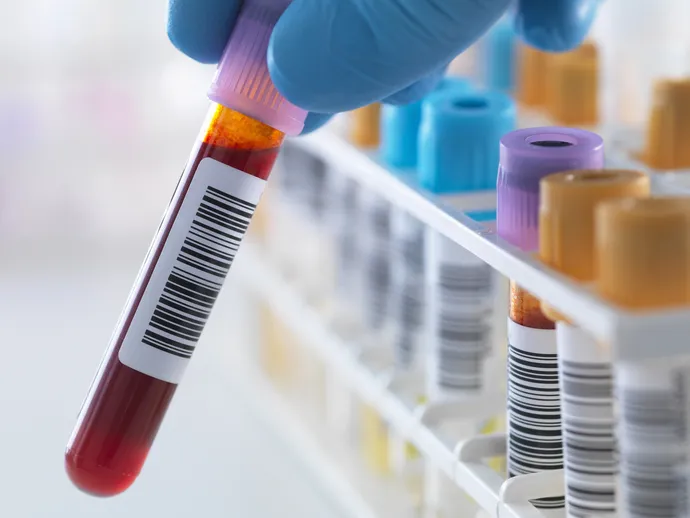Last updated on 3rd Sep 2022 - By Dwayne Michaels
Most common symptoms of low hemoglobin :
Left untreated, anemia can cause many health problems, such as:
Brittle nails :

One of the signs of iron deficiency is visible on your nails too. Brittle nails or spoon-shaped fingernails is another symptom of anemia that you may experience. It generally affects the fingernails but can also occur in toenails.
This condition occurs when iron deficiency becomes severe. When brittle nails accompany pale skin, you should get to your doctor to have some blood tests done. A series of blood tests will determine whether you are anemic and give your doctor a better overall picture as to how serious your condition is, if one exists.

Also Read : Hemoglobin treatment
Pale or yellow skin :

Pallor is a pale color of the skin that can be caused by anemia and is the result of a reduced amount of oxyhaemoglobin. Pale skin in an anemic person is caused by the lack of hemoglobin in RBC and a lack of RBC in general. As the numbers of red blood cells become restricted, not enough reach the surface of the skin.

Receive world-class medical opinion about your low hemoglobin levels over email.Upload blood test report now
Fast or irregular heartbeat :

Anemia can lead to a rapid or irregular heartbeat (arrhythmia). When you're anemic your heart must pump more blood to make up for the lack of oxygen in the blood. This can lead to an enlarged heart or heart failure.
Cardiac arrhythmia refers to a group of conditions that cause the heart to beat irregular, too slowly, or too quickly. The heart rate that is too fast above 100 beats per minute in adults is called tachycardia, and a heart rate that is too slow below 60 beats per minute is called bradycardia.
Also Read : Can Low or High hemoglobin cause Heart Problems?
Some types of arrhythmias have no symptoms. Doctors identify a healthy heartbeat by counting the number of times the heart beats every minute (bpm) during rest. This is known as the resting heart rate. Symptoms of arrhythmia, when present, may include palpitations or feeling a pause between heartbeats. In more serious cases, there may be lightheadedness, passing out, shortness of breath or chest pain.
Take control of your health and LONGEVITY. Meet ZUPAFOOD ELITE. It has Rare medicinal mushrooms, New Zealand grown ingredients, marine sourced collagen and other premium ingredients. ZUPAFOOD is now available in USA, UK, India and 40 other countries. Know more about ZUPAFOOD ELITE
The most common symptom of arrhythmia is an awareness of an abnormal heartbeat, called palpitations. These may be infrequent, frequent, or continuous. Some of these arrhythmias are harmless (though distracting for patients) but some of them predispose to adverse outcomes.
Also Read : 7 Natural Ways To Improve hemoglobin
However, some asymptomatic arrhythmias are associated with adverse events. Examples include a higher risk of blood clotting within the heart and a higher risk of insufficient blood being transported to the heart because of a weak heartbeat. Other increased risks are of embolization and stroke, heart failure, and sudden cardiac death.
Also Read : Painful health problems of famous celebrities
Shortness of breath :

Dyspnea, also called shortness of breath, is a feeling of not being able to breathe well enough. Anaemia is often a cause of dyspnea. Menstruation, particularly if excessive, can contribute to anaemia and to consequential dyspnea in women.
Headaches are also a symptom of dyspnea in patients suffering from anaemia. Some patients report a numb sensation in their head, and others have reported blurred vision caused by hypotension behind the eye due to a lack of oxygen and pressure; these patients have also reported severe head pains, many of which lead to permanent brain damage.
Symptoms can include loss of concentration, focus, fatigue, language faculty impairment and memory loss.
Also Read : What can cause inaccurate blood test results?
Dizziness :

Dizziness is the disorienting feeling of being unbalanced or lightheaded. Dizziness is a common medical complaint, affecting 20-30% of persons, but dizziness can also be a cause of anemia.
Anemia is a lack of healthy red blood cells or hemoglobin in your blood, which carry oxygen to your organs : including your brain. This lack of healthy red blood cells and hemoglobin can lead to dizziness.
Chest pain :

Pain in the chest may cause people to worry. Chest pain is pain or discomfort in the chest, typically the front of the chest. Chest pain may be described as sharp, dull, pressure, squeezing or heaviness.
When there's a low level of oxygen in the blood because of anemia, the heart works extra hard to compensate. This puts a lot of pressure on the heart which can cause it to experience pain.
Some other symptoms of anemia are :
- Weakness
- Cravings to eat ice
- A tingling or crawling feeling in the legs
- Tongue swelling
- Tongue soreness
- Headaches
- Pounding in the ears
- Fatigue
- Cold hands and feet


Receive world-class medical opinion about your low hemoglobin levels over email.Upload blood test report now
Also Read : What diseases can cause abnormal hemoglobin?
Also Read : Hemoglobin treatment
Also Read : Read 10 GOLDEN ARTICLES on Anemia
Are lab test results always right?
While they do have to meet very high standards, they can be wrong sometimes. For example, you might get a false positive (the results say you have the condition you were tested for, but you really dont) or a false negative (the results say you don’t have a condition, but you really do).
Lab test failures contribute to delayed or wrong diagnoses and unnecessary costs and care. For context, a 2014 study estimated that diagnostic errors happen about 12 million times per year in U.S. outpatients. This represents 1 in 20 adults. In case you think your blood test result doesn't make any sense, we recommend that you do the test again from HealthLabs as they perform testing using verified methods and they test blood only in the best CLIA certified labs. You won't need a doctor's referral or insurance.
Besides Lab test failures, there are many other reasons for inaccurate blood results. Know the common reasons for inaccurate blood test results?
Also Read : Can Low or High hemoglobin cause Heart Problems?
Also Read : 7 Natural Ways To Improve hemoglobin
Important note :
Please keep notes of the symptoms you are experiencing. These notes can help your doctor identify low hemoglobin impact on your body. Keep the notes till the time you experience symptoms of low hemoglobin and also keep a record of the following:
- Medications used for low hemoglobin.
- The duration of symptoms.
- The intensity of the headache, if any.
- Fever logs and duration of the fever.
- The date you experienced low hemoglobin symptoms for the first time.
- Side effects of the medicine you are experiencing, if any.
- The duration of the disease.

Does drinking water before blood test affect results?
Certain blood tests require fasting beforehand. Fasting before certain blood tests is important to help make sure that your test results are accurate. Read on to learn more about the effects of water on blood test results.
Know more
What can cause inaccurate blood test results?
Several factors can affect blood test results. Read on to know the top reasons which can lead to inaccurate blood test results.
Read more
Painful health problems of famous celebrities
Read on to know chronic illnesses of top celebrities
Know more